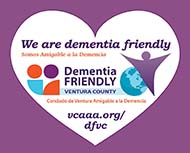
You want to believe your parents are all-powerful and invincible. It can be difficult to see some signs that suggest your parents are starting to slow down and lose some of their abilities. But at the same time, changes may occur so subtly that you may not notice or might be more likely to second-guess yourself. Look for some of the following signs that may indicate your parent needs a caregiver.
Changes in Personal Hygiene
If your parent was once polished and put-together, and you’ve noticed that lately they don’t change their outfits often or have different grooming habits, it could be a sign that they need a caregiver. These could be signs of depression, which can be medically managed, but they could also indicate that your parent now finds these once-simple tasks too difficult to do on their own. They may still have the desire to maintain their appearance but may have lost the strength or coordination to do it themselves.
Changes in Mental Status
Many seniors develop changes in mental status, especially as they get older. Signs of mental decline include confusion, disorientation, or even loss of interest in previous activities. Changes like accusing others of things that haven’t happened could be signs of Alzheimer’s disease, which warrants a medical evaluation. It can be difficult to tell whether symptoms are signs of depression or the onset of dementia, but these symptoms generally suggest your parent could benefit from having a caregiver.
Changes in Physical Functioning
Physical functioning changes can include sleeping all day, poor diet, weight loss, and having difficulty with moving around. Don’t fall for the misconception that these changes are normal parts of aging. They can be signs that your parent is depressed, or they could indicate that your parent needs some help. Many seniors have significant changes in physical function, including loss of hearing or taste.
Decline in Maintaining Responsibilities
Your parent can still seem like their normal self, but they may begin having more problems with keeping up with their responsibilities. You may notice that they’re forgetting appointments and important dates, making mistakes with taking medication or displaying poor judgment, such as falling for financial scams. They may not be as capable of home and yard maintenance and may find it too difficult to keep up with basic cleaning. When you observe that they’re having more trouble keeping up with the tasks they once could do on their own, it may be time to give them a caregiver’s assistance.
New or Worsening Medical Problems
New or worsening medical problems are one of the most common reasons to seek a caregiver for your parent. When your parent experiences something like a stroke or has been diagnosed with something that requires regular management such as diabetes, you may find yourself in over your head in caring for them. These situations call for getting help from trained caregivers. You want your parents to stay healthy as long as possible. Sometimes making that happen requires having the wisdom to know when you can’t do it alone.
If you believe your loved one needs assistance in their home, Assisted Healthcare Services can help. We offer Caregiver Services that can help keep your loved ones safe and thriving at home. For more information, please contact the award-winning team at Assisted Healthcare Services, at (800) 949-6555 or www.AssistedCares.com.







